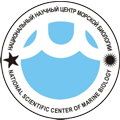The second webinar (a scientific session) with Indian colleagues from the National Institute of Oceanography (NIO), Department of Zoology, Presidency College, Chennai and Cochin Base of the Fishery Survey of India was held on 23nd of July, 2020. Participants from the Indian side were Dr. Cathrine Sumathi Manohar, Dr. Mandar Nanajkar, Dr. Maria-Judith B.D. Gonsalves, Dr. Punyasloke Bhaduri, Dr. B Manikandan, Dr. Shishir Shotriya, Dr. Mangesh Uttam Gauns, Dr. Soniya Sukumaran, Dr. Karuppasamy, Dr. Sijo P. Varghese; from the Russian side were: acting director – Dr. Konstantin A. Lutaenko, Dr. Marina V. Malyutina., Dr. Yuri F. Kartavtsev, Dr. Tatiana N. Dautova, Dr. Yulia A. Trebukhova, Dr. Julia K. Zograf, Dr. Oleg G. Borzykh.

The online meeting has been held to exchange scientific information in the form of online presentations where each scientist reported about their scientific interests and ongoing research. Nine Indian scientists had presentations under the following titles: Dr. Mangesh Uttam Gauns “Phytoplankton and zooplankton diversity in oxygen limited waters of the Northern Indian ocean”, Dr. Mandar Nanajkar “Taxonomy, molecular studies and Indian Ocean habitats as focus areas”, Dr. Maria-Judith B.D. Gonsalves “Microbial ecology of marine ecosystems from gas hydrates potential sediemtns to oceanic coastal and estuarine systems”, Dr. Cathrine Sumathi Manohar “Relative importance of bacteria and fungi in the open ocean and “Molecular studies and functional characterization of bacteria and fungi”, Dr. Soniya Sukumaran “Biodiversity, molecular taxonomy, ecology and functioning, food web dynamics”, Dr. B Manikandan “Mesophotic coral ecosystems & submerged carbonate banks, coral ecosystem restoration, Coral reef ecological processes, coral-algal symbiosis and coral bleaching”, Dr. Punyasloke Bhaduri “Biocomplexity of microbial communities in coastal biotopes, biogeochemical cycling, functional biodiversity of free-living marine nematodes and microbial associations; health of blue economy”, Dr. Karuppasamy “Taxonomic and molecular identification”, “Predator prey relationships”, “Oxygen minimum zone (OMZ) influences on the vertical migration”, “Economic importance (fishery aspects), Dr. Sijo P. Varghese “Fish stock assessment, fish taxonomy and ichthyoparasitology”.


The scientists of NSCMB had taken part in the session with the following presentations: Dr. T.N. Dautova “Corals in Pacific ecosystems”, Dr. Yu.F. Kartavtsev “Molecular markers: from biodiversity assessment and modern general biology paradigm verification to seafood mislabeling detection”, Dr. M.V. Malyutina “Some results of Russian-German deep-sea expeditions 2010-2016 in NW Pacific”, Dr. J.K. Zograf “An integrative approach in nematode studies”, Dr. O.G. Borzykh “Research of marine filamentous fungi at the National Science Center of Marine Biology”.

The online meeting with Indian colleagues was held in friendly atmosphere and lasted for three hours allowing scientists to exchange information, research findings, suggestions, questions and ideas for further mutually beneficial cooperation. A joint decision was made to start preparing an agreement on scientific cooperation between two institutions, and to develop ideas for joint field works and expeditions.
Staff members of the International Cooperation Department of the NSCMB FEB RAS Mrs. Viktorya R. Tsoy and Dr. Vadim M. Serkov took part in preparation and organization of the webinar.
International Cooperation Department,
A.V. Zhirmunsky National Scientific Center of Marine Biology
Far Eastern Branch of the Russian Academy of Sciences


